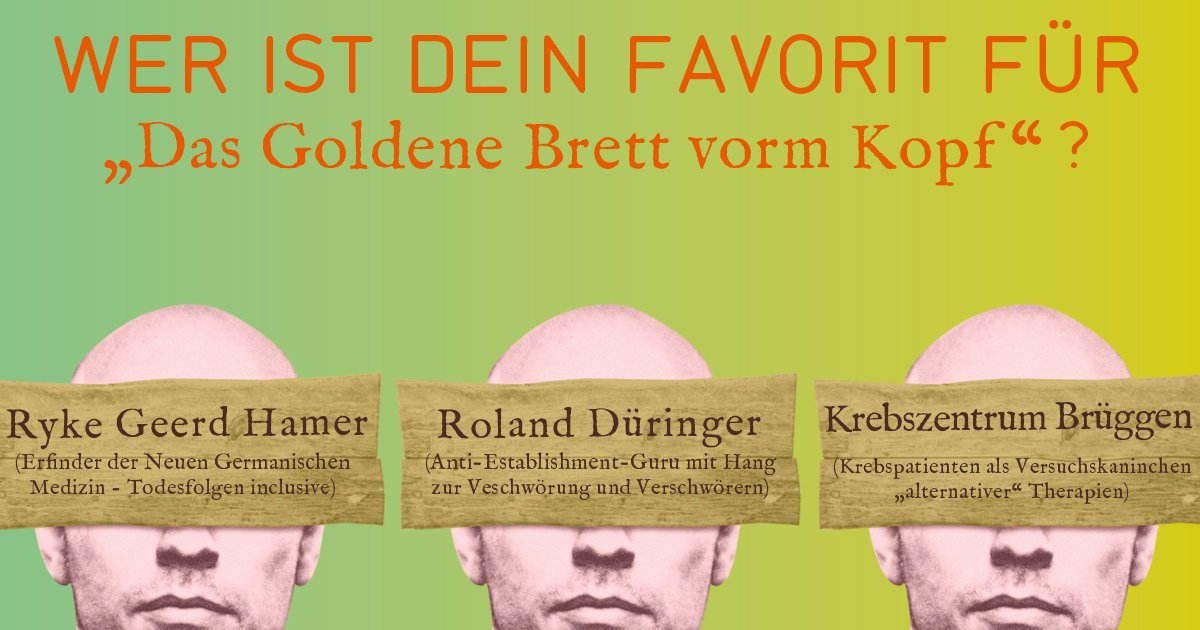Many amazing people put a lot of effort into rational skepticism. Overall, however, the movement remains rather ineffective. In a new blog post, we try to understand why that is the case.
There are, we argue, several big problems in the skeptic movement, and we need to address them if we want the movement to become more effective and more efficient. It is not going to be easy, but it is far from impossible.
Read the full article here:
https://www.skeptiker.ch/some-problems-of-the-skeptic-movement/
Black swan events are highly improbable events that have great, negative impact. Conspiracy theories are coping mechanisms for black swan events: They try to explain them. However, conspiracy theories are epistemologically defective because they mistake the very low probability of black swan events as impossibility, and thus, a conspiracy as the only possible explanation.
Read Marko Kovic’s article Probability, black swan events and conspiratorial thinking on Skeptiker.
The ongoing process of digitization has changed both the media and also us as media consumers profoundly. On the internet, you can not only inform yourself about almost anything, but you get bombarded with information from all sides. This has certainly positive effects. But, unfortunately, there is one major downside: How should you know which content you can trust?
Marko and Tobias explore the different types of fake news in the latest episode of the podcast skeptisCH.
Swiss skeptics published their final discussion paper for 2016. It’s about consumer behavior and cognitive biases. The abstract says:
As consumers, we are rational in principle, but all too often irrational in practice: A number of so-called cognitive biases impact our rational decision-making. Our tendency for irrational decision-making is compounded by marketing, which is little more than the art of exploiting cognitive biases. Cognitive biases affect consumer behavior on two dimensions, preference genesis and preference order.
Prevalent though they are, cognitive biases in consumer behavior are not inevitable. There are two general strategies for reducing the impact of cognitive biases: Debiasing and self-nudging.
Download the paper directly from here:
Kovic M., Laissue N. – Consuming rationally: How marketing is exploiting our cognitive biases, and what we can do about it – Swiss Skeptics Discussion Paper Series Volume 1, Issue 3
The German-speaking skeptical society GWUP nominated three people/institutions for “the most bizarre, most outrageous, brashest pseudoscientific nonsense contribution” in Germany, Austria and Switzerland of 2016: Ryke Geerd Hamer (founder of the dangerous Germanische Neue Medizin), Roland Düringer (comedian turned politician who spreads lots of conspiracy theories) and Krebszentrum Brüggen-Bracht (alternative cancer clinic of Heilpraktiker Klaus Ross). The award is called the ‘Golden Board in Front of the Face’, to rebuke purveyors of pseudoscience who don’t see the harm they’re doing.

The award ceremony was held on 11 October in Vienna, co-organised by the Viennese regional GWUP group Society for Critical Thinking (Gesellschaft für kritisches Denken) and the Freethinkers League of Austria (Freidenkerbund Österreich). A side-event was held in Hamburg Skeptics in the Pub with a livestream of the Viennese ceremony.
(more…)

